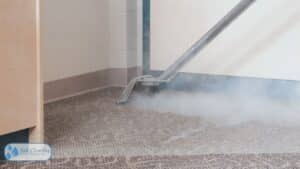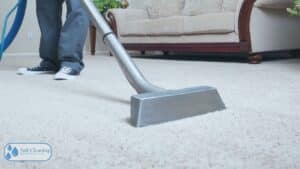Allergies are a common health issue that affects millions of people worldwide. They occur when the immune system overreacts to substances that are normally harmless, such as pollen, dust mites, pet dander, and mould. Allergies can cause a range of symptoms, including sneezing, coughing, itching, and difficulty breathing.
Cleaning products can play a significant role in managing allergies. Many cleaning products contain harsh chemicals and fragrances that can trigger allergic reactions in sensitive individuals. It is important for allergy sufferers to use the right cleaning products to minimise exposure to allergens and irritants.
What to Look for in Cleaning Products for Allergy Sufferers
When choosing cleaning products for allergy sufferers, there are several key factors to consider. First, it is important to avoid products that contain ingredients known to trigger allergies or irritate the respiratory system. These ingredients include fragrances, dyes, ammonia, chlorine bleach, and formaldehyde.
On the other hand, there are ingredients that can be beneficial for allergy sufferers. Look for cleaning products that contain natural ingredients such as vinegar, baking soda, and essential oils. These ingredients are effective at cleaning without causing allergic reactions or respiratory irritation.
Reading labels is crucial when selecting cleaning products for allergy sufferers. Look for products that are labelled as hypoallergenic or fragrance-free. These products are less likely to contain allergens or irritants that can trigger allergic reactions.
Dust Mite Allergies: Products to Combat Dust
Dust mites are microscopic creatures that thrive in warm and humid environments. They feed on dead skin cells and their droppings can trigger allergic reactions in sensitive individuals. To combat dust mite allergies, there are several cleaning products that can be helpful.
HEPA filters are highly effective at trapping dust mites and their allergens. Consider using vacuum cleaners with HEPA filters to remove dust mites from carpets, rugs, and upholstery. Additionally, using dusting tools that trap and hold dust rather than spreading it around can help minimise exposure to dust mite allergens.
Bedding and pillow covers that are specifically designed to be allergen-proof can also be beneficial for dust mite allergy sufferers. These covers create a barrier between the individual and the dust mites, reducing the risk of allergic reactions.
Pet Allergies: Products to Remove Pet Dander
Pet dander, which consists of tiny flecks of skin shed by animals, is a common allergen that can cause allergic reactions in sensitive individuals. To remove pet dander from your home, there are several cleaning products that can be helpful.
Pet hair removers, such as lint rollers or sticky pet hair removal sheets, can effectively remove pet hair and dander from furniture, clothing, and other surfaces. Air purifiers with HEPA filters can also help remove pet dander from the air, reducing the risk of allergic reactions.
Carpet cleaners specifically designed for pet stains and odours can be beneficial for pet allergy sufferers. These cleaners are formulated to break down and remove pet dander and other allergens from carpets and rugs. Additionally, using pet shampoos that are hypoallergenic and free from harsh chemicals can help minimise allergic reactions in sensitive individuals.
Pollen Allergies: Products to Clean Air and Surfaces
Pollen allergies are common during certain times of the year when plants release their pollen into the air. To clean the air and surfaces in your home and minimise exposure to pollen allergens, there are several products that can be helpful.
Air purifiers with HEPA filters are highly effective at removing pollen particles from the air. Look for air purifiers that are specifically designed to capture allergens such as pollen. Additionally, using HEPA filters in your HVAC system can help filter out pollen particles before they enter your home.
Wearing pollen masks while cleaning or spending time outdoors can also help minimise exposure to pollen allergens. These masks are designed to filter out pollen particles, reducing the risk of allergic reactions.
When cleaning surfaces, use cleaning tools that trap and hold dust rather than spreading it around. Microfiber cloths and mops are highly effective at capturing pollen particles and other allergens. Additionally, regularly washing bedding and curtains can help remove pollen allergens from your home.
Mould Allergies: Products to Prevent and Remove Mould
Mould allergies can be triggered by exposure to mould spores, which are tiny reproductive units released by mould. To prevent and remove mould from your home, there are several products that can be helpful.
Dehumidifiers can help reduce moisture levels in your home, making it less hospitable for mould growth. By maintaining humidity levels below 50%, you can help prevent mould from thriving in your home.
Mould removers specifically designed to kill and remove mould can be beneficial for mould allergy sufferers. Look for products that are safe to use on various surfaces and contain ingredients such as hydrogen peroxide or vinegar, which are effective at killing mould.
Air purifiers with HEPA filters can help remove mould spores from the air, reducing the risk of allergic reactions. Additionally, using cleaning tools that are specifically designed to remove mould, such as scrub brushes with stiff bristles, can help effectively clean surfaces contaminated with mould.
Fragrance Allergies: Products to Avoid Synthetic Fragrances
Fragrance allergies are common and can cause a range of symptoms, including headaches, skin irritation, and respiratory issues. To avoid synthetic fragrances that can trigger allergic reactions, there are several products that allergy sufferers should consider.
Fragrance-free cleaning products are a safe option for individuals with fragrance allergies. These products do not contain any added fragrances, reducing the risk of allergic reactions. Look for products that are labelled as fragrance-free or hypoallergenic.
Natural cleaning products that are scented with essential oils can be a good alternative to synthetic fragrances. Essential oils such as lavender, tea tree, and eucalyptus have natural antimicrobial properties and can leave your home smelling fresh without causing allergic reactions.
DIY cleaning solutions made from simple ingredients such as vinegar, baking soda, and lemon juice can also be a safe option for individuals with fragrance allergies. These ingredients are effective at cleaning and do not contain any added fragrances.
Chemical Sensitivities: Products with Natural Ingredients
Some individuals have sensitivities to chemicals commonly found in cleaning products. These sensitivities can cause a range of symptoms, including headaches, dizziness, and skin irritation. To avoid chemical sensitivities, there are several products that can be helpful.
Natural cleaning products that are free from harsh chemicals and synthetic fragrances are a safe option for individuals with chemical sensitivities. Look for products that are made with plant-based ingredients and do not contain any artificial additives.
DIY cleaning solutions made from simple ingredients such as vinegar, baking soda, and hydrogen peroxide can also be a good alternative for individuals with chemical sensitivities. These ingredients are effective at cleaning without causing allergic reactions or respiratory irritation.
Reading labels is crucial when selecting cleaning products for individuals with chemical sensitivities. Look for products that are labelled as free from harsh chemicals, artificial additives, and synthetic fragrances. Additionally, avoid products that contain ingredients known to cause allergic reactions or respiratory irritation.

Recommended Cleaning Products for Allergy Sufferers
There are several specific cleaning products that are recommended for each type of allergy:
– For dust mite allergies: Vacuum cleaners with HEPA filters, dusting tools that trap and hold dust, and bedding and pillow covers that are allergen-proof.
– For pet allergies: Pet hair removers, air purifiers with HEPA filters, carpet cleaners for pet stains and odours, and hypoallergenic pet shampoos.
– For pollen allergies: Air purifiers with HEPA filters, HEPA filters for HVAC systems, pollen masks, and cleaning tools that trap and hold dust.
– For mould allergies: Dehumidifiers, mould removers, air purifiers with HEPA filters, and cleaning tools for mould removal.
– For fragrance allergies: Fragrance-free cleaning products, natural cleaning products scented with essential oils, and DIY cleaning solutions.
– For chemical sensitivities: Natural cleaning products, DIY cleaning solutions, and products labelled as free from harsh chemicals and synthetic fragrances.
When selecting cleaning products for allergy sufferers, consider brands that are known for their hypoallergenic and fragrance-free formulations. Some recommended brands include Seventh Generation, Ecover, Method, and Mrs. Meyer’s.
Maintaining a Clean and Allergy-Free Home
Maintaining a clean home is crucial for allergy sufferers to minimise exposure to allergens and irritants. By using the right cleaning products and following proper cleaning practices, individuals with allergies can create a safe and allergy-free environment.
It is important to understand the specific allergens that trigger your allergies and choose cleaning products accordingly. Avoiding ingredients that can cause allergic reactions or respiratory irritation is key. Reading labels and looking for products that are hypoallergenic or fragrance-free can help ensure that you are using the right cleaning products for your needs.
In addition to using the right cleaning products, it is important to follow proper cleaning practices. Regularly vacuuming carpets and upholstery, dusting surfaces with tools that trap dust, washing bedding and curtains regularly, and maintaining proper humidity levels can all help minimise exposure to allergens.
By taking these steps and using the recommended cleaning products for your specific allergies, you can create a clean and allergy-free home environment. Remember to consult with a healthcare professional if you have severe allergies or if your symptoms persist despite using appropriate cleaning products.
If you’re interested in learning more about the environmental impact of household cleaning products, check out this informative article from SAFI Cleaning Services. They delve into the various ways that cleaning products can affect the environment and offer tips on how to make more eco-friendly choices. Understanding the impact of our cleaning habits is crucial for allergy sufferers who want to minimise their exposure to harmful chemicals. Read more here.

FAQs
What are allergies?
Allergies are a reaction of the immune system to a foreign substance that is not typically harmful to the body. Common allergens include pollen, dust mites, pet dander, and certain foods.
How do allergies affect people?
Allergies can cause a range of symptoms, including sneezing, runny nose, itchy eyes, skin rashes, and difficulty breathing. In severe cases, allergies can lead to anaphylaxis, a life-threatening reaction.
What are the best cleaning products for allergy sufferers?
The best cleaning products for allergy sufferers are those that are free from harsh chemicals and fragrances. Look for products that are labelled as hypoallergenic, non-toxic, and eco-friendly. Some examples include vinegar, baking soda, and natural cleaning solutions.
What should I avoid when choosing cleaning products for allergies?
When choosing cleaning products for allergies, it is important to avoid products that contain harsh chemicals, fragrances, and irritants. These can exacerbate allergy symptoms and cause respiratory problems. Avoid products that contain bleach, ammonia, and synthetic fragrances.
How often should I clean my home to reduce allergens?
To reduce allergens in your home, it is recommended to clean your home at least once a week. This includes vacuuming carpets and upholstery, dusting surfaces, and washing bedding and curtains. It is also important to keep humidity levels low and to avoid clutter, which can trap allergens.
Are there any natural remedies for allergies?
There are several natural remedies that can help alleviate allergy symptoms, including saline nasal rinses, steam inhalation, and herbal teas. However, it is important to consult with a healthcare professional before trying any new remedies, especially if you have a severe allergy.




